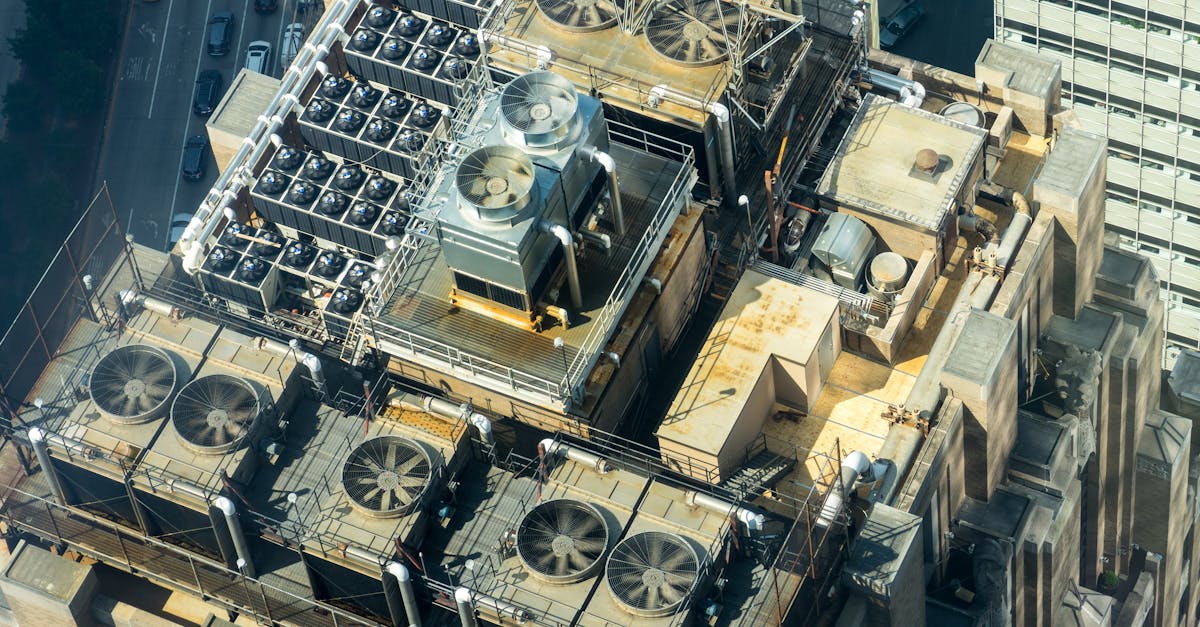
Importance of Ventilation
Proper ventilation plays a crucial role in maintaining indoor air quality. It helps to bring in fresh air while expelling stale air, which can be laden with pollutants. Buildings with inadequate ventilation often experience a buildup of harmful substances, including carbon dioxide, volatile organic compounds, and other allergens. By allowing outdoor air to circulate within indoor spaces, the overall air quality improves significantly, creating a healthier environment for occupants.
Incorporating effective ventilation systems is one of the key Indoor Air Quality Solutions in residential and commercial buildings. Natural ventilation strategies, such as opening windows and using vents, can be beneficial. Mechanical systems, including exhaust fans and air exchange units, also aid in enhancing airflow. These systems not only regulate humidity levels but also reduce the concentration of airborne contaminants, ensuring a safer and more comfortable atmosphere indoors.
How Fresh Air Circulation Impacts Air Quality
Fresh air circulation plays a crucial role in maintaining optimal indoor air quality. Stale air can harbor pollutants, allergens, and odors that contribute to discomfort and health issues. Introducing fresh outdoor air reduces the concentration of these harmful substances, creating a healthier living environment. Effective ventilation strategies allow for a continuous influx of fresh air, diluting indoor contaminants and providing necessary oxygen to inhabitants.
Incorporating Indoor Air Quality Solutions in homes and workplaces is essential for reaping the benefits of proper air circulation. Regularly opening windows or utilizing mechanical ventilation systems enhances airflow, contributing to a significant reduction in airborne pollutants. This ongoing exchange not only improves comfort but also supports overall well-being by reducing the risk of respiratory problems and allergic reactions linked to poor air quality.
Regular Maintenance Practices
Regular maintenance practices are essential for ensuring a healthy indoor environment. Routine cleaning and servicing of HVAC systems can significantly reduce the buildup of dust, mold, and other pollutants that can compromise air quality. Ignoring these tasks can lead to inefficient systems that recirculate contaminants, ultimately affecting the comfort and health of occupants. Implementing effective Indoor Air Quality Solutions in residential and commercial spaces starts with a commitment to regular maintenance.
Regular filter changes are another critical component of maintaining good air quality. Filters should be checked and replaced according to the manufacturer's recommendations or more often if needed. Dirty filters not only impede airflow but also allow pollutants to accumulate and circulate throughout the building. Incorporating these maintenance habits ensures that Indoor Air Quality Solutions in any setting deliver optimal performance, contributing to a cleaner and healthier atmosphere for everyone inside.
Keeping HVAC Systems Clean and Efficient
Regular maintenance of HVAC systems plays a crucial role in ensuring optimal performance and longevity. Dust, dirt, and other contaminants can accumulate within the system over time. A clean HVAC unit not only operates efficiently but also reduces the likelihood of airborne pollutants circulating throughout the home. Implementing Indoor Air Quality Solutions in routine inspections and cleanings can significantly improve the air residents breathe.
Updating filters regularly is another essential maintenance task. Filters capture allergens and dust, preventing them from being recirculated into living spaces. Neglected filters may become clogged and compromise the system’s efficiency. Using high-quality filters designed for specific needs can enhance air quality and overall system performance. Implementing these practices contributes to a healthier indoor environment, making it easier to maintain acceptable air standards.
Monitoring Indoor Air Quality
Monitoring indoor air quality is essential for maintaining a healthy living environment. With the rise of awareness about the effects of pollution and allergens, people are looking for effective Indoor Air Quality Solutions in ensuring the spaces they inhabit are safe and comfortable. By utilizing various tools and devices, individuals and businesses can gain insight into the levels of particulate matter, volatile organic compounds, and other harmful substances present in their indoor air. This proactive approach allows for timely interventions and adjustments, ultimately leading to improved well-being.
Several devices are now available for tracking air pollutants, making monitoring more accessible than ever. From simple handheld meters to sophisticated systems integrated into smart homes, these gadgets provide real-time feedback on air quality. Indoor Air Quality Solutions in the market often include features that notify users when pollutant levels exceed healthy thresholds. Consistent monitoring not only empowers individuals to maintain cleaner air but also educates them about the importance of their environmental choices.
Tools and Devices for Tracking Air Pollutants
A variety of tools and devices can help track air pollutants in your home, ensuring that you maintain a healthy environment. Air quality monitors are widely available and can detect a range of harmful substances, including volatile organic compounds, particulate matter, carbon dioxide, and humidity levels. With real-time data, these devices allow homeowners to identify pollution sources and make necessary adjustments.
Incorporating these monitors into your indoor environment is crucial for implementing effective Indoor Air Quality Solutions in everyday life. Many of these devices come equipped with smartphone applications, offering alerts and insights about air quality trends over time. Understanding this information empowers individuals to create a safer and more comfortable living space.
FAQS
Why is ventilation important for indoor air quality?
Ventilation is crucial as it helps to circulate fresh air, reducing the concentration of indoor pollutants and ensuring a healthier living environment.
How does fresh air circulation impact air quality?
Fresh air circulation dilutes indoor air contaminants, lowers humidity levels, and helps maintain a comfortable temperature, all of which contribute to improved air quality.
What regular maintenance practices can be implemented to enhance indoor air quality?
Regular maintenance practices include changing air filters regularly, cleaning HVAC ducts, and ensuring that ventilation systems are functioning properly.
How can I keep my HVAC system clean and efficient?
To keep your HVAC system clean and efficient, schedule regular professional inspections, change filters as needed, and clean the vents and ducts to prevent dust and debris buildup.
What tools and devices are available for monitoring indoor air quality?
There are various tools available for monitoring indoor air quality, including air quality monitors, carbon dioxide detectors, and humidity gauges that help track the levels of pollutants and overall air quality in your home.
